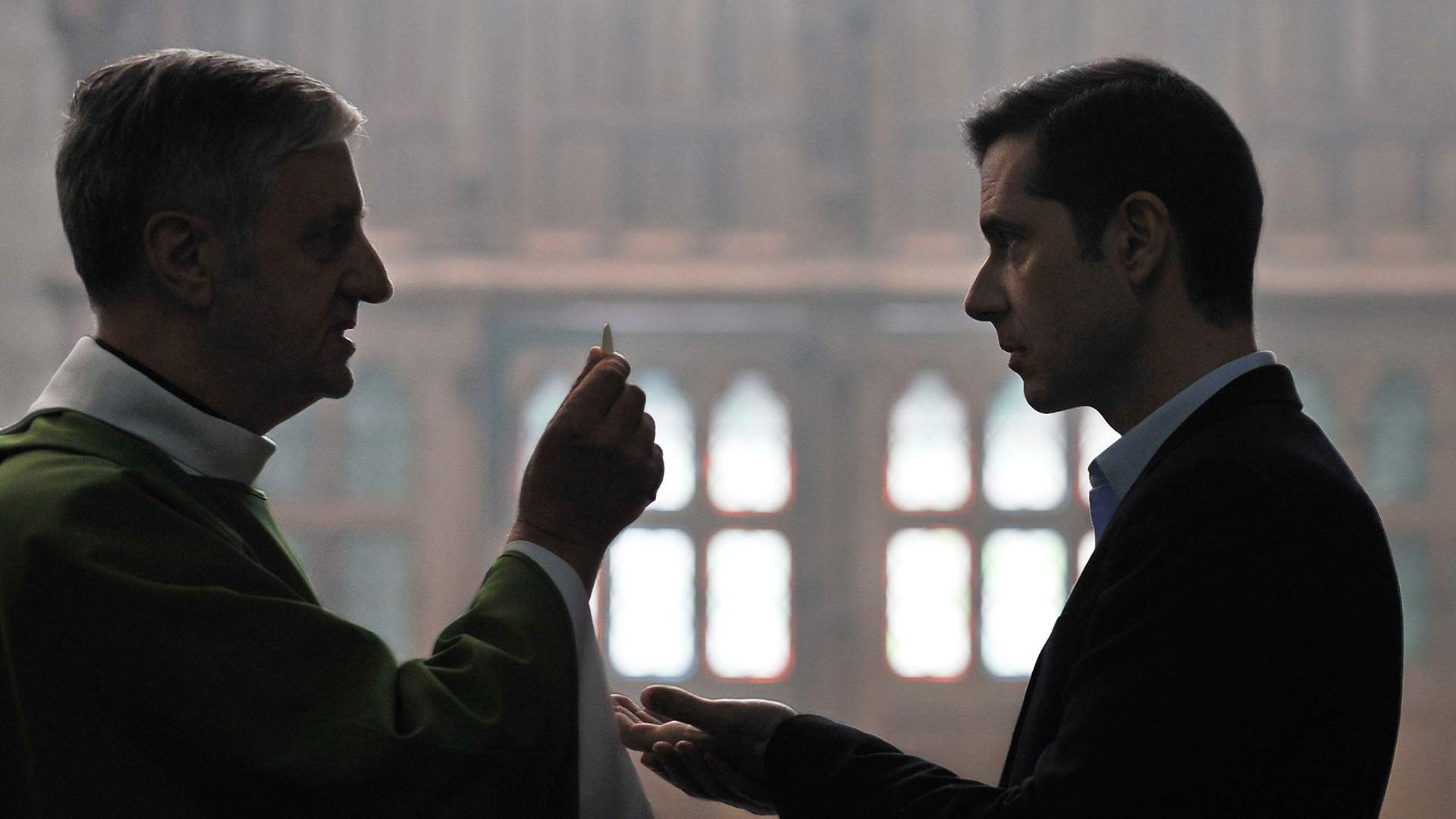By the Grace of God
Exploring abuse in the Catholic Church, this sensitive, sobering and superbly acted picture dramatises a real French case.
Overview
Among the array of difficult decisions that shape each and every movie, structure — that is, how directors and screenwriters choose to order and relay their on-screen stories — ranks among the most pivotal. Many filmmakers prefer the scaffolding of their films to remain invisible, so their features flow seamlessly from beginning to middle to end without anyone noticing the wheels turning, and that's perfectly fine. Indeed, it suits plenty of cinematic tales. But when someone like acclaimed French auteur François Ozon calls attention to exactly how he's organising and doling out his narrative, he does so with a definite purpose. Actually, in his latest drama By the Grace of God, he does so to make a statement. This Berlinale Silver Bear-winner explores sexual abuse in the Catholic Church, diving into its tough subject matter by not only charting the paths of three men who were all molested by the same priest as children, but by dedicating roughly a third of its running time to each of them.
This move, made by Ozon as both a writer and director, is also equally sensible and natural. By the Grace of God meets its trio of protagonists as adults, as lawyer Alexandre Guérin (Melvil Poupaud), then atheist François Debord (Denis Ménochet), and then the younger and more visibly troubled Emmanuel Thomassin (Swann Arlaud) all face their ordeals decades earlier at the hands of Father Preynat (Bernard Verley). When Alexandre, who remains a church-goer and now has his own young children, discovers that the Lyon priest is still allowed to work with kids, he makes a complaint to Cardinal Philippe Barbarin (François Marthouret). Later, Police Chief Courteau (Frédéric Pierrot) begins investigating as well. Slowly, both François and Emmanuel are drawn into these enquires, with the narrative shifting its focus accordingly. Although there's no literal baton-passing, that's the overall effect.
By arranging the movie in this fashion, Ozon gives himself the space to tell three very distinctive (yet still related) stories. As is to be expected, Alexandre, François and Emmanuel's shared traumatic childhood experiences have affected them in completely different ways, and conveying this is crucial. Beyond that, however — and perhaps more importantly than that — Ozon's tripartite structure shows how something this insidious and atrocious causes ripples that don't ever end. Reflecting the reality of such cases, By the Grace of God could've included five, ten or vastly more main characters, relaying the torch from one to the other. As the news keep reminding us, tales like these aren't fictional or isolated. Ultimately, the film hones in on just three men and their encounters with one priest, but it wholeheartedly highlights the devastating scope of sexual abuse in religious institutions, both in terms of the number of victims and the unshakeable pain that follows them throughout their lives.
The details at the centre of By the Grace of God are, as with excellent Best Picture Oscar winner Spotlight, actually based on truth. Here, the film's ripped-from-the-headlines storyline caused two of the figures portrayed within its frames take legal action to — unsuccessfully — attempt to block its release. While he's known for working in fiction across everything from the comedy (In the House) to psychosexual thriller (Double Lover) genres, Ozon reportedly originally considered turning this story into a documentary. Sticking with an appropriately beige-hued drama instead, he more than does it justice. This is a sensitive and sobering picture, with Ozon in a far more restrained mode than evidenced in previous efforts such as Swimming Pool and Young & Beautiful. The use of letters read via voice-over to provide viewers with swathes of information doesn't always work as well as intended, but that By the Grace of God sparks a wealth of anger, dismay and empathy while watching should surprise no one — nor that it does so in a measured and careful manner.
It seems a sad fact of life that, in most corners of the world, movies like this are always going to be topical and timely. In Australia, in a year that's seen a landmark case taken through Victoria's courts, the film lands at a particularly significant moment. As a result, it's fitting that Ozon's thoughtful feature apes a fundamental tenet of legal action in such heartbreaking circumstances. By telling this tale, it gives victims a voice. Poupaud, Ménochet and Arlaud are each superb as men forever changed by their tainted youth — Poupaud in a grounded way, Ménochet playing lively and impassioned (and proving worlds away from his menacing turn in last year's Custody), and Arlaud serving up a simply haunting performance. By virtue of its savvy structure, By the Grace of God pushes this top trio and their real-life characters to the fore, ensuring that the consequences of letting abuse get swept under the pulpit are not just on display for all to see, but are thoroughly inescapable.





